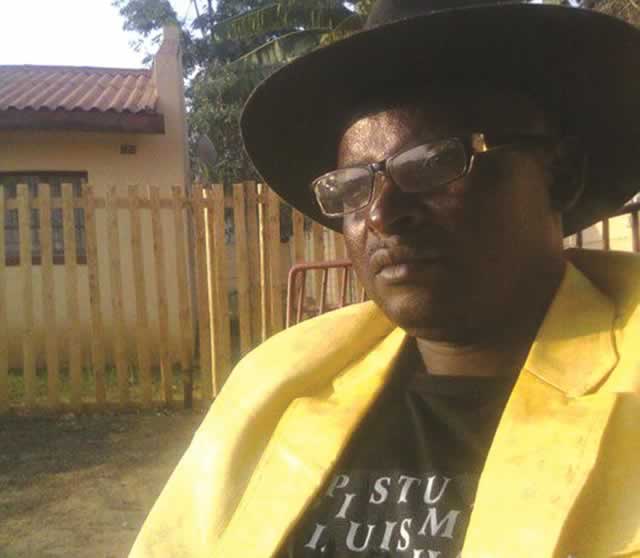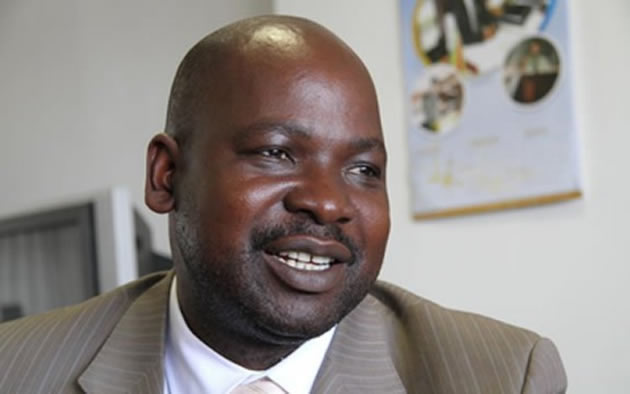‘Teachers deserve better pay, benefits’


MANUEL NYAWO . . .”There is need for Government to quickly address issues around remuneration and other factors around it that will enable the teacher to execute his duties with high motivation
Christopher Charamba THE INTERVIEW
THERE has been a lot of debate and discussion on issues regarding education in Zimbabwe from the need to teach subjects like Maths in local languages to changes in the school curriculum and the need to prioritise Science, Technology, Engineering and Mathematics (STEM) subjects. The Herald’s Christopher Charamba (CC) spoke to the CEO of the Teachers’ Union of Zimbabwe, Mr Manuel Nyawo (MN), to gain the perspective of the educators on some these issues affecting the education sector in Zimbabwe.
CC: Good day Mr Nyawo thank you for availing yourself for this interview. Recently Buhera South legislator Hon Joseph Chinotimba said subjects like Mathematics should be taught in the mother tongue. What is your position on this? Is it feasible and,if so, how would it be implemented?
MN: There is purely nothing new in teaching students in the mother tongue. This, in fact, has been the trend since the pre-colonial period. Children have always been receiving instruction in their L1.
However, it must be noted that there was a huge bias towards English after the bastardisation of the mother tongue by the colonial masters.
The difference now and as per Cde Chinotimba’s comments is that it should now be formalised and education supervisors should not expect otherwise but to find children being officially taught in their mother tongue.
This is to the extent that testing and examinations should also be done in their mother tongue.
This is nothing new as the trend is common in non-former British colonies like China, Mozambique, the DRC, Japan, India and most of the Islamic states. In fact, countries like China, Korea, France, Japan, Germany and Indonesia, inter-alia, have the most sophisticated technological developments because they emphasise their first language as the medium of instruction.
However, equity by language should be struck with regard to recruitment of teachers in teacher training colleges, so that gradually all languages will be adequately staffed. Meanwhile, in-servicing of teachers in all Schools for Languages other than Shona and Ndebele should be ongoing in each and every school.
That can be achieved by having maybe one or more resource teachers to assist others in the languages. It is important that teacher training should incorporate a totality of these L1 into the teacher training curriculum.
CC: There have been proposed changes to the school curriculum in Zimbabwe. What are some of the major changes and how prepared are we as a nation for the changes to come into effect in the coming year?
MN: It’s true that there has been some major changes in the Zimbabwean school curriculum, particularly in the areas of information technology, introduction of continuous assessment, life skills education and Heritage Studies, to mention but a few.
However, it must be noted that while it is prudent and worthwhile that these changes be made beginning 2016, is must never be forgotten that there are challenges linked to it.
The question of resources immediately comes into play as it’s common knowledge that the country’s economy is underperforming. A lot of material and financial support is needed in order to fully implement this new curriculum.
CC: Higher and Tertiary Education Science and Technology Minister Professor Jonathan Moyo recently said that the current crop of graduates from the UZ would struggle to find jobs as most of them are from the humanities and commerce faculties. He went on to say that we should focus on STEM courses. How does the new curriculum address the issue of STEM subjects and will it encourage more students to go into STEM-related fields?
MN: The new curriculum is actually very much biased towards STEM courses. This obviously will see an improvement in the number of graduates who are pro-STEM-related fields.
CC: How equipped are educators and schools with the necessary knowledge and equipment to teach STEM subjects?
MN: This is the most problematic area that you have touched on. It must be noted that educators as implementers of the STEM subjects are well equipped in terms their knowledge base of the subjects but the challenges hinge on lack of resources in the form of teaching and learning equipment, and sometimes proper teaching environments for these subjects.
Let’s not forget that we still have cases where children are learning under trees, some in tobacco barns due to lack of proper infrastructure. This is why it is important for Government first to address these technical challenges first before they can fully implement the demands of the new curriculum to avoid shortchanging the vulnerable children. However, Government should continue engaging private-public partnership arrangements in order to overcome some of these challenges.
CC: The Herald recently reported that teachers were seeking better packages. What are some of the demands that teachers would like and what why have they not been met in the past?
MN: It is common cause that there has been much talk on the need to improve remuneration of teachers, but we are calling for an immediate return of the traditional incentives that teachers used to get in order to augment their meagre salaries.
We also are concerned with the state of teachers teaching in the rural areas who need to be cushioned with rural allowances. On top of that we have always been calling on Government to consider provision of non-monetary benefits in the form of housing, duty -free car importation facilities for teachers as is happening with parliamentarians and traditional leaders (chiefs).
These demands have not been met as we strongly feel our clarion call has not been taken to the only man whom we feel has a heart for his suffering teachers, who is none other than His Excellency, President Robert Mugabe. Let me take this opportunity to implore him that our situation demands his immediate intervention.
CC: We are currently in examination season and in recent years the “O” and “A” Level pass rate has dropped. What are some of the factors influencing this and how can they be addressed?
MN: As far as we are concerned, the poor pass rate is attributed to poor morale in the teaching fraternity. There is need for Government to quickly address issues around remuneration and other factors around it that will enable the teacher to execute his duties with high motivation.
The other issue that needs to be addressed is the aspect of high teacher-pupil ratio, which makes it very difficult for teachers to cope with their workload. Double sessioning is also another serious impediment that needs to be attended to if the desire to improve the pass rate is to be realised.








Comments